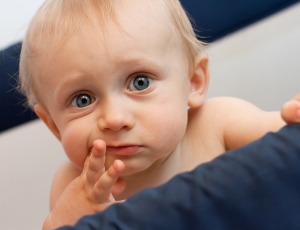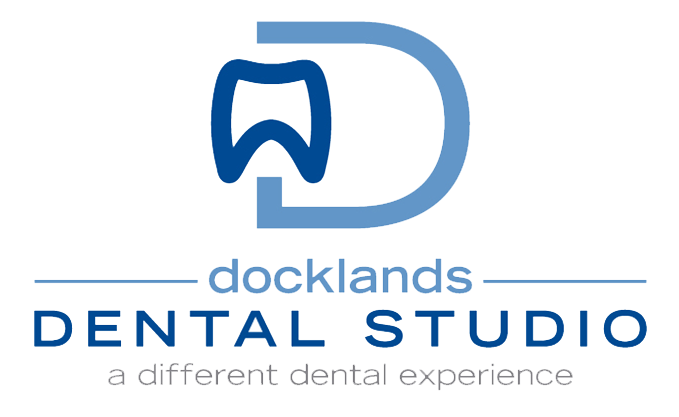At Docklands Dental Studio we treat a lot of expectant and new mothers, as well as children. Just as humans demonstrate great variation in the alignment, appearance, and health of their teeth—so babies demonstrate great variation in the timing and symptoms of their teething period. Although your child’s teeth will erupt in a specific order, there may be great differences in how and when children cut their teeth.
 Here are some tips to happy(er) teething, so all our new parents will be ready when baby’s first teeth arrive. To learn more about baby’s first teeth, contact our Docklands dental office today at (03) 9021-9487 to schedule a consultation.
Here are some tips to happy(er) teething, so all our new parents will be ready when baby’s first teeth arrive. To learn more about baby’s first teeth, contact our Docklands dental office today at (03) 9021-9487 to schedule a consultation.
When and Where Baby Teeth Erupt
Children have different timelines for cutting teeth. Some begin teething at just 2 months; others may not cut a tooth until after their first birthday. Generally speaking, however, most babies begin teething somewhere between 4 and 7 months.
The first teeth to erupt will be the two bottom front teeth, followed by the two top front teeth. Then the teeth surrounding the bottom ones, followed by the top. The last teeth to come in are the molars. When all the baby teeth have come in, your child should have 20 teeth, sometime around the 3rd birthday.
Regardless of where your child falls on this spectrum, be ready for things to change for your little one, when the teething process begins.
There Will Likely Be Pain
For parents who struggle with establishing positive sleeping patterns, teething can sometimes throw a monkey-wrench right into any progress they’ve made in the first few months. Take comfort in the fact that every new parent goes through some degree of teething trauma; you are not alone!
As soon as those teeth start pushing upwards, your baby will experience:
- soreness and swelling of the gums
- drooling
- biting or gnawing behavior
- fussiness and irritability
- disruption to sleeping and eating habits
As teeth push from beneath the gum tissue, they will irritate and cut, causing red, swollen, sore gums in your infant’s mouth. This triggers an increase in saliva production, so drooling is often the first clue that the teething process has started. Your baby may respond by biting everything he can fit into his mouth, or he may simply be more fussy and irritable than usual.
Some doctors believe that teething can cause diarrhea and fever, as well. Others believe teething babies are more prone to viruses because they seek relief by putting their hands (and everything else they can grab) into their mouths—thus exposing themselves to germs. Regardless of the cause, don’t be alarmed if your child develops these symptoms, and treat them as you would in any other situation.
To Ease Their Pain
Doctors recommend good quality teething rings, which can be chilled in the refrigerator. If your child doesn’t like teething rings, try chilling, but not freezing, a damp washcloth—he may prefer a different texture. Cold pressure can reduce swelling and encourage the teeth to erupt. Other possible teethers include: whole chilled carrots; a cold spoon; ice chips in a small mesh bag; or teething biscuits. Always watch your child carefully when giving him something to chew on that may be broken or gnawed down. Never provide your teething infant with something small enough to become a choking hazard.
If your child seems to be in pain, try several different teethers before you consider administering painkillers, such as infant paracetamol or ibuprofen. Teething pain is a natural part of infancy, and though it is unpleasant, it should be manageable for most infants.
Amber teething necklaces have recently been popular among celebrity parents, as many claim amber to be a commonly-used folk remedy, possibly with analgesic properties. This claim has not been evaluated by doctors, and since babies should never suck or chew on beaded necklaces (due to the choking hazard), we don’t recommend using these.
Clean Those Little Mouths
Even before your child’s first tooth erupts, you should clean his or her mouth every day. One technique is to use a piece of soft, sterile gauze to gently wipe baby’s gums of plaque, twice per day. After the first teeth erupt you can continue this method or start using an infant tooth brush and non-fluoridated toothpaste.
Come and See Us!
We look forward to meeting your little one, so don’t wait for every tooth to come in before you schedule your child’s first dental visit. We recommend bringing in your infant for a dental check-up soon after the first birthday. If your infant is one year old and has at least one tooth, contact our Docklands dental office today at (03) 9021-9487 to schedule baby’s first dental visit.
